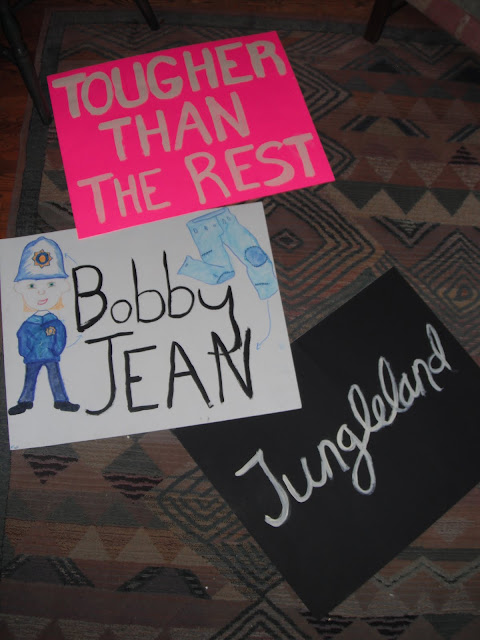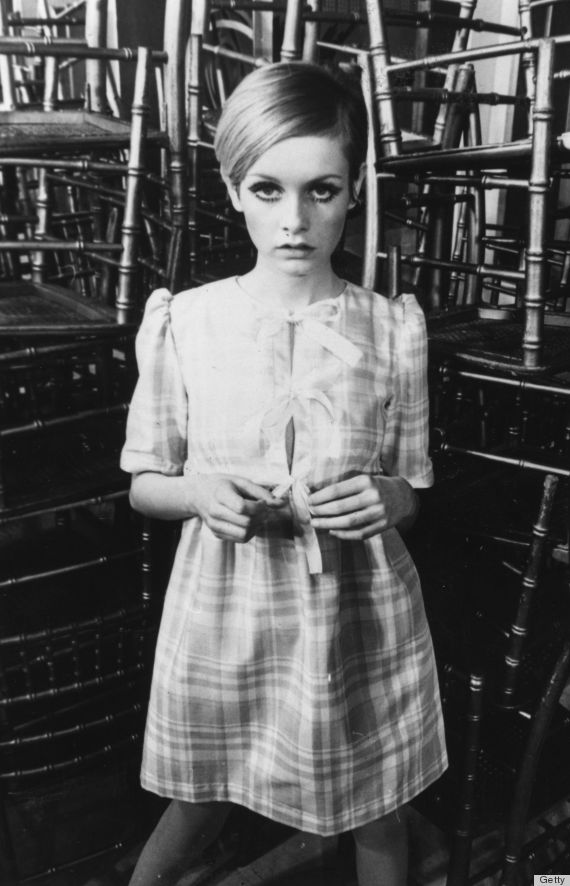When did the glamorous option replace the right one? This
isn't a rhetorical question, for there is no denying that it has happened, and that there has always
been a sense that it could happen.
True democracy is at odds with the impulse to elevate beautiful people into
rarefied positions, and humanity has yet to kick the habit of celebrity
watching. We love shiny objects and the ones that own them, so why shouldn't a
presidential candidate stage an infomercial as a victory speech?
Let's start analyzing this problem with the small, innocuous
world of celebrity Twitter feeds: Chrissy Teigan appeared on The Daily Show
last week, where Trevor Noah* complimented her on her political tweeting. Together
they had a smug, incredulous laugh about the haters, and her adorable
compulsion to speak her mind to millions of people on the internet, regardless
of potential backlash.
I'm betting my political views overlap substantially more
with Chrissy Teigan than with Donald Trump, but if you're wondering why
Tuesday's victory speech from the Republican frontrunner looked like an
infomercial, ask yourself why anyone - to be specific, 1.3 million twitter
followers, cares what a supermodel thinks about politics.
I can give Chriss Teigan the benefit of a doubt and assume
she's a lovely person whose political views dovetail with my own, and still say
without question that she is no more qualified to dictate a political
conversation than any single person I might meet on the subway. To be beautiful
and well married does not make one a sociologist. But it does make you an aspirational
figure. And this is the key component that analyses of Trump's popularity don't
generally grasp. With the exponential rise of celebrity culture, mediated by
the internet and social media, glamour has trumped reason in the eyes of a
voting public who should know better.
Anyone following Chrissy Teigan, or The Daily Show on
Twitter will probably agree that you're more likely to find the
"right" opinion (and yes, there is such a thing) from someone like
Mark Leibovitch, writer for the New York Times, whose book "This
Town" elucidates the sickly
situation in Washington better than anything this author has read (In sum:
Democracy isn't dead in America, but the infection is starting to smell), than
from her. But those same people won't be following him on Twitter. The need to
make an educated decision has been hijacked by the need to feel a connection to
the people who live the lives of our dreams.
Did you ever wonder why Beyonce did ads for L'Oreal hair color?
How many people ever believed Beyonce did her own roots in the kitchen sink like
a mere mortal? Probably about as many people believe Chrissy Teigan is a viable
political commentator. But humanity is an easy mark: we know we're not going to
be movie stars, pop singers or supermodels, but if we can see ourselves as
alike in small ways - be it by wearing Beats headphones, drinking Pepsi or
sharing their politics, it connects us to the divine.
The chief draw of a man like Donald Trump is that he is someone
who people want to be. Undereducated people, maybe, predominately white people,
true. People who believes they have an easy solution to all the country's
problems, incredulous that the suits in Washington haven't figured out what
they've known for years: A wall will keep out Mexicans; Banning Muslims will
stop terror; Anyone who doesn't agree with you is a loser; When they try to
stop you, sue, sue, sue. Each tenet of his ideology is as reductive as it is
easy to pitch.
Listing the ways Mr. Trump is wrong, misguided or flat out
lying is missing the point. What's important to his followers is that he is
saying what they think, what they believe, and in so doing connecting them with
a life they've only dreamed of. We all
wish we could be like him, and if you share his beliefs, then maybe you are
like him, a little. His power lies not in being able to change peoples' minds,
but in validating the beliefs they already have. It's not politics, its
celebrity.
This is why Beyonce got paid fifty million dollars to hawk
Pepsi, though scientists have yet to link sugary cola to beauty, fitness or a
lovely singing voice. It's why a supermodel's thoughts on the world are more
valued than a journalist for the New York Times.
There is in fact a strong correlation between celebrity
culture and poor social mobility. That is - in a country where being born poor
means you'll probably die poor, with the slashing of welfare programs, a
political system which favours the wealthy, and college tuitions so high you'll
graduate with crushing debt if you graduate at all - people will sooner attach
their aspirations to fantasies rather than practical solutions, thus creating a
feedback loop where people are less engaged in politics, and politics is less
engaged with the people.
It's no longer about choosing the right or wrong president.
It's about finding someone who can repeat your own thoughts back to you in a
sexier voice, and the ego trip that comes from knowing you have something in
common with the power class. The left is no more immune to this than the right:
the Clinton's dynastic politics are also a sign voters would sooner settle for
a name brand than do some digging of their own.
Ultimately, the supermodel who shares your beliefs might be
as toxic as the billionaire who doesn't.
You might also like: This is Your Brain on Beyonce (Though Lemonade has made it completely obsolete)
You might also like: This is Your Brain on Beyonce (Though Lemonade has made it completely obsolete)
*Sidenote, Trevor Noah's interviews with beautiful women are all strangely endearing. Remember when he told Brea Larson he knew "lots of hungry people?" Adorable.










